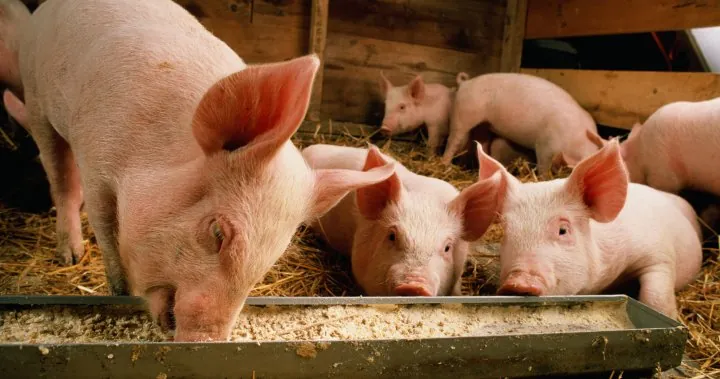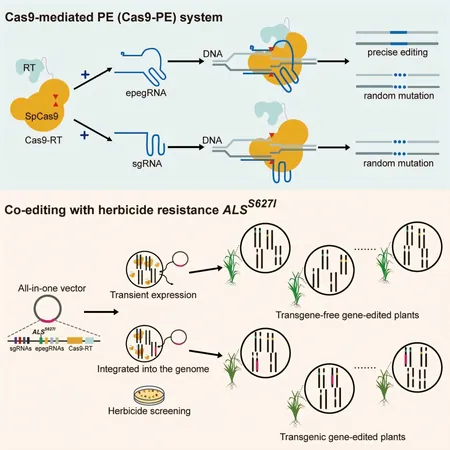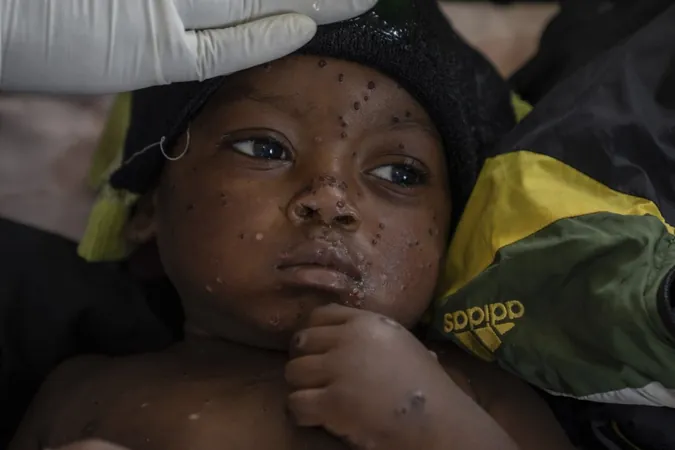
Alarming Rise of Bird Flu in Pigs Sparks Human Health Fears
2024-11-19
Author: Jacob
The ongoing spread of bird flu (avian influenza) has raised significant alarms, particularly following its recent detection in pigs, prompting questions about the potential implications for human health. The situation escalated when a British Columbia teenager was hospitalized in critical condition after contracting the virus, suspected to be linked to outbreaks in local poultry farms.
Experts are particularly concerned about the avian influenza A(H5N1) strain, which was recently reported in pigs on a small farm in Oregon. This unprecedented case marked the first detection of bird flu in pigs in the United States. Within days, a second pig on the same farm tested positive, raising critical eyebrows among health officials.
According to Kerry Bowman, a bioethics and global health expert at the University of Toronto, 'With every new species infected, the risk elevates.' Pigs are uniquely worrisome as they can host both avian and human flu viruses simultaneously, facilitating genetic exchanges that could create new, more virulent strains capable of infecting humans more easily.
The 2009 H1N1 pandemic serves as a stark reminder of these risks. That outbreak is believed to have stemmed from such genetic recombination events in pigs. As the bird flu continues to infect various wildlife—ranging from chickens to polar bears—the interconnectedness of species poses a growing threat.
As confirmed cases of bird flu rise, including a recent identification in Hawaii and human infections tied to poultry operations in Oregon, the urgency for enhanced surveillance and reporting becomes increasingly evident. Current data suggests that human infections typically arise only after close contact with infected birds or contaminated environments, but health officials warn that this could change if the virus finds favorable conditions to mutate.
Bowman emphasized the potential danger that industrial livestock operations could pose. 'Animals are kept in crowded conditions, making it easier for infections to spread quickly,' he cautioned. While the current risk from the Oregon pigs appears low since they are not from a commercial farm, the prospect of an outbreak occurring in a more densely populated farming environment could have dire consequences.
Virologists like Levon Abrahamyan at the University of Montreal underscore the importance of detecting and eliminating suspected outbreaks swiftly, particularly in larger pig farms. Although the risk for avian flu transmission to humans is currently considered rare, the merging of various virus strains in pigs could create a novel strain that humans are unprepared to combat.
Despite the lack of evidence for person-to-person transmission of bird flu thus far, scientists remain concerned about the potential for a pandemic scenario. Bowman criticized Canada for its insufficient testing and surveillance measures while urging the need for immediate action to prevent further spread.
Furthermore, a lack of available bird flu vaccines in Canada has become an increasingly pressing concern. Experts are calling for proactive measures, such as stockpiling H5N1 vaccines, an approach that the U.S. has already embarked on. Currently, Canada does not stockpile these vaccines, citing their limited shelf life.
In light of these developments, the health community is calling for comprehensive strategies to minimize the risks associated with avian influenza. As the situation evolves, vigilance and preparedness are essential in mitigating potentially catastrophic outcomes for both animal and human health.
Stay tuned for further updates on this developing story!









 Brasil (PT)
Brasil (PT)
 Canada (EN)
Canada (EN)
 Chile (ES)
Chile (ES)
 España (ES)
España (ES)
 France (FR)
France (FR)
 Hong Kong (EN)
Hong Kong (EN)
 Italia (IT)
Italia (IT)
 日本 (JA)
日本 (JA)
 Magyarország (HU)
Magyarország (HU)
 Norge (NO)
Norge (NO)
 Polska (PL)
Polska (PL)
 Schweiz (DE)
Schweiz (DE)
 Singapore (EN)
Singapore (EN)
 Sverige (SV)
Sverige (SV)
 Suomi (FI)
Suomi (FI)
 Türkiye (TR)
Türkiye (TR)